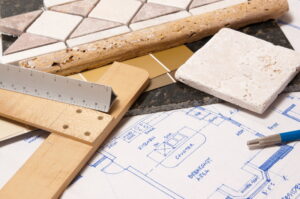If you’re considering getting a whole-house generator to protect your family in case of an extended power outage, we like the way you’re thinking. We offer excellent generator service in Buffalo, NY and Western New York to help homeowners have important peace of mind.
There are many sizes of generators, and you’ll need to know how powerful a model you need. Below, we’re going to look at sizing a generator: why it’s important and how it’s done.
Why Generator Sizing Matters
It’s essential to have the correct size generator, and here’s why:
- Adequate Power Supply: A generator that’s too small won’t run all the appliances you need. You’ll have the lights on, but your heater and AC may not run. An oversized generator may cause damage to sensitive electronics—and you’ll waste money on extra power you don’t need.
- Efficiency: A generator either too large or too small for a home will not operate at maximum efficiency, leading it to consume more fuel in proportion to the electrical load it’s supporting.
- Equipment Life: Lower efficiency and increased strain on an incorrectly sized generator will mean more wear and tear on the unit. You’ll face more repair problems and eventually an early system replacement.
- Safety: An undersized generator will take on too much of an electrical load, which can lead to problems like overheating, constantly tripped circuit breakers, and electrical fires.
Calculating Your Power Needs
The first step in calculating how much power you need from your AC is to determine the electrical load the generator must handle. You don’t need to include every appliance in the calculation, only the ones you think are essential, such as the lights, the refrigerator, the HVAC system, the Wi-Fi router for communication, and any powered medical equipment. Make a list of what you need.
Take this list and find the wattage rating of each appliance. You’ll often find the wattage labeled on the device, but you can also search online for standard appliance wattages. Use an average value for items that have different power usages, like a multi-stage air conditioner.
You have to take into account the difference between starting wattage and running wattage: some appliances require more power when starting up than when running. Note both the starting wattage and running wattage for any of these appliances.
Now add up all the running wattages of the electrical devices on your list. Then add the highest starting wattage from the devices that have both starting and running wattages. The final result is your home’s peak power demand—the load the generator must be able to handle.
When looking over generator models, search for a generator that has a capacity that will accommodate the estimated load + 20%. You’ll need that 20% as a buffer that will allow the generator to operate without interruption.
You Must Have Professionals
If the sizing description above seems basic, we have to remind you that the only people who can successfully and safely install a whole-house generator are licensed electrical professionals. You can count on us to help you with those calculations so you’ll have the exact size of generator you need, and then we’ll see it has a perfect installation for reliable performance.
Scherer Electric Is Western New York’s Favorite Electrician! Call us today for great generator service.






